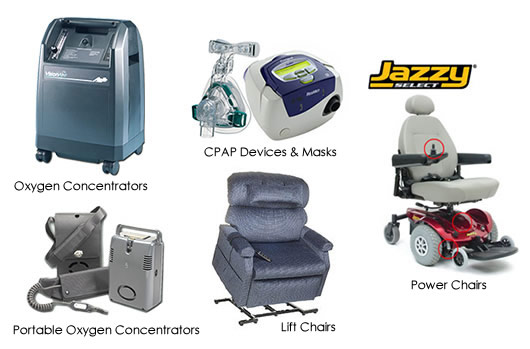Home medical equipment is available in a wide variety of models, features and uses ranging from portable nebulizers for respiratory diseases to special therapeutic shoes for diabetics. If you suffer from a chronic health condition, using the right medical supplies at home can drastically improve your quality of life, help you regain your confidence and give you a positive outlook on the future. While your doctor can help steer you in the right direction based on your unique needs and background, it helps to get to know the home medical equipment market to make sure that you get the best care you deserve. Being a well-educated consumer and understanding the type of products that are available for your condition and in your price range is always the key to leading a long and healthy life on any budget.

One of the most widely used types of home care products is medical equipment for respiratory problems. Whether you have a chronic asthma condition that needs regular maintenance or occasional problems with your sinuses, using the right piece of equipment can help you monitor and improve your breathing in between visits to your doctor. Besides saving you time and money on unnecessary appointments, using quality respiratory equipment at home can give you the peace of mind that you are covered when it comes to maintenance and minor incidents. As far as the type of respiratory equipment you can use, nebulizers are great for inhaling medications that target the respiratory system. Unlike some of the commercial-grade equipment in the doctor’s office, nebulizers for home care are portable and easy to use. While they are designed for administering medicine, other respiratory medical supplies like nasal cannulas are helpful for patients who temporarily need small amounts of supplemental oxygen.
Mobility aids are another common type of home medical equipment. That’s not surprising when you think about how many people will need to use them at least once in the course of their lifetime. Mobility equipment covers a wide range of products for temporary injuries and chronic conditions including crutches, wheelchairs, walkers and seat lifts. In a way, artificial limbs and prosthetics can also be seen as mobility aids since they are used to improve the patient’s range of motion and physical ability. Mobility aids are among the most accessible and the most important home care products on the market because they can help people with limited movement increase their self-esteem and return to leading normal, active lifestyles.
Keep in mind that home medical equipment is not meant to function as a cure or an emergency treatment. While they can help you lead a healthier, happier and more active life, home care products can’t take the place of your physical check-ups. This is especially important if you have a chronic condition. For example, portable nebulizers can be very helpful in treating asthma at home, but that doesn’t mean you should try to handle potentially dangerous asthma attacks on your own. Home care equipment should be used in conjunction with your doctor’s advice and with his or her approval unless you have a mild and temporary condition that doesn’t need medical attention.
This article was provided exclusively to the website you are viewing it from by Nancy Leeman. Nancy is a retired RN and has extensive knowledge and practice with Omron blood pressure monitors.
